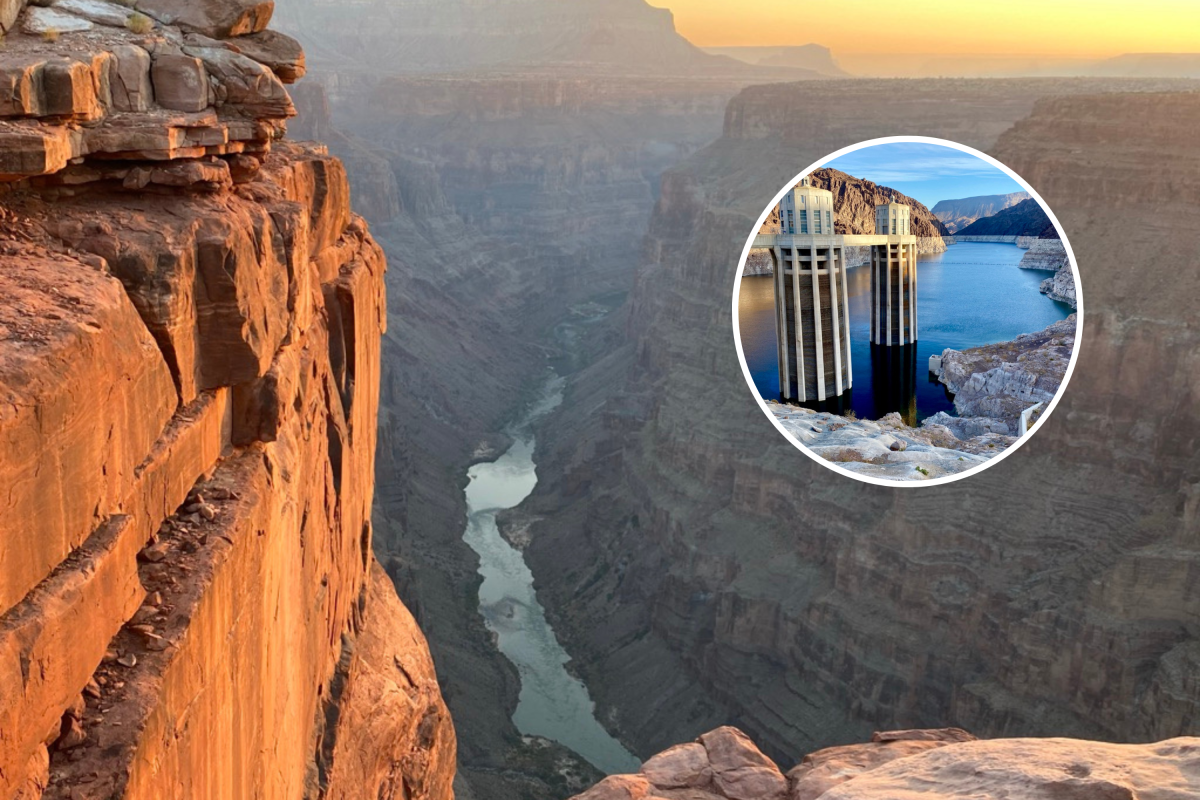More than half of the Colorado River's total annual water flow is used on agriculture, a new study has found.
The report, published in Communications Earth & Environment, was undertaken to find out how much of the Colorado River's water is actually consumed. The river is one of the most vital in the entire U.S., however, it has seen worryingly low levels recently due to years plagued by drought paired with an overconsumption of water.
This is why reviews like this are needed in order to determine where exactly the water ends up, and how best to conserve it. Despite the importance of the river, and the current concern surrounding it, a complete water budget on the movements and losses of the water has not yet been undertaken.
"The current situation is very frightening. Farmers are getting cut off from their irrigation supplies," Brian Richter, president of Sustainable Waters, senior freshwater fellow at the World Wildlife Fund and corresponding author of the study, told Newsweek.
"The dams on the river can't produce the electricity needed in the Southwest. Recreational marinas on Lake Powell have been closed down. Native fish are on the brink of extinction. It's scary to think the river could dwindle to a trickle through the Grand Canyon if the water level in Lake Powell drops much lower."

To initiate the assessment, Richter and colleagues studied the Colorado River's water budget and compared it with the annual water use average and water losses between the years 2000 and 2019.
They considered all ways that humans use the river's water from irrigation, drinking, and industrial uses. Indirect losses were also considered including evaporated from reservoirs.
Irrigation for agriculture was the largest use by far, responsible for 74 percent of direct human usage, the study reported. It also accounted for 52 percent of the total water consumption. Around two thirds of the water used for irrigation was also used on cattle feed crops. This made up 46 percent of direct human usage or 31 percent of overall use, the study reported.
"Remarkably, a full accounting of the uses of water from the Colorado River system has never been attempted previously. Given that every drop of the river gets used before it reaches the Gulf of California in Mexico, we wanted to know where all that water goes," Richter said. "We also wanted to make sure that the negotiators debating how to share the river among seven states and Mexico have the most accurate and complete information available."
The Colorado River's water levels are the lowest they have been in a century. The West has been gripped by the most severe megadrought seen since around the year 800 in recent years. The river is fed through snowmelt coming down from the surrounding mountains that accumulates through the winter periods.
However, climate change is making these weather patterns more unpredictable. In 2022, the region was seeing a particularly dry period. Vital Colorado River reservoirs such as Lake Mead reached the lowest water levels on record during this year.
"Persistent overuse of water supplies from the Colorado River during recent decades has substantially depleted large storage reservoirs and triggered mandatory cutbacks in water use," the study reads. "The river holds critical importance to more than 40 million people and more than two million hectares of cropland. Therefore, a full accounting of where the river's water goes en route to its delta is necessary."
A sigh of relief came in 2023, when intense winter storms built up record amounts of snowpack that provided the Colorado River with more water. This year is also looking promising for snowpack levels following some wet weather in February.
But the issue remains that the Colorado River's water levels are certainly not what they once were. As it is so vital to the region, seeing its water levels continue to decrease is not an option for life in the West as we know it.
This most recent study will help provide data for policymakers. Six legal agreements on the use of the Colorado River are set to expire in 2026. This study should provide a framework for officials when discussing these agreements.
In the study, the authors warn that "a significant reduction in water use" is needed to avoid further shortages. They note that most of its water will have to remain in the river, in order to support its ecosystems.
"The water negotiators need to make two basic decisions. One is to agree on how much water is available on a reliable and sustainable basis," Richter said. "The other is how to share the available water among the seven states and Mexico. And they need to ensure that enough water stays in the river system to support its ecological health all the way to the delta! By our accounting we need to reduce our use by 20 percent immediately, and we'll need to cut more as the climate warms and further reduces the river's flow."
Do you have a tip on a science story that Newsweek should be covering? Do you have a question about the Colorado River? Let us know via science@newsweek.com.
Uncommon Knowledge
Newsweek is committed to challenging conventional wisdom and finding connections in the search for common ground.
Newsweek is committed to challenging conventional wisdom and finding connections in the search for common ground.
About the writer
Robyn White is a Newsweek Nature Reporter based in London, UK. Her focus is reporting on wildlife, science and the ... Read more
To read how Newsweek uses AI as a newsroom tool, Click here.








